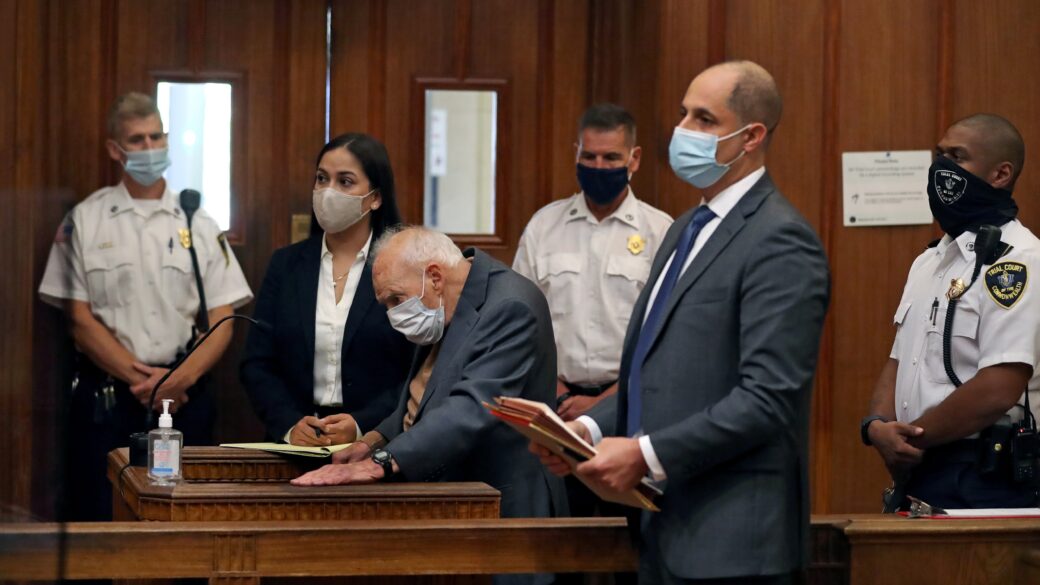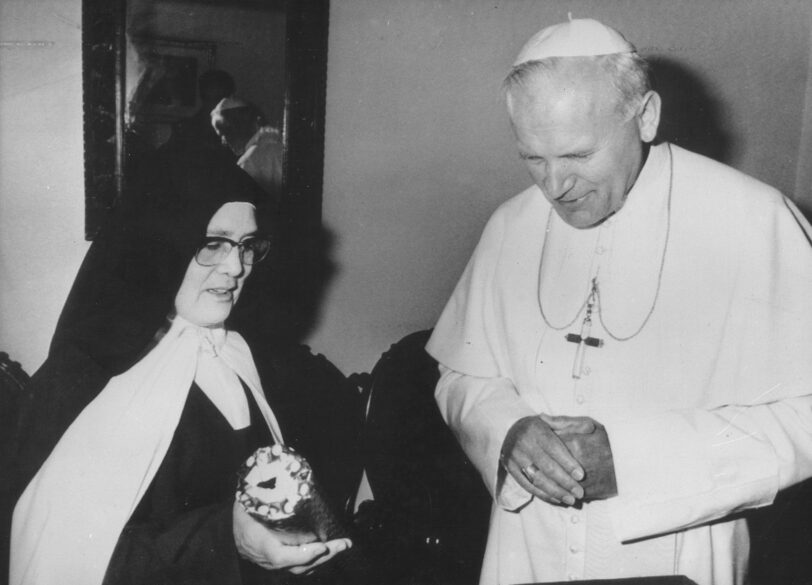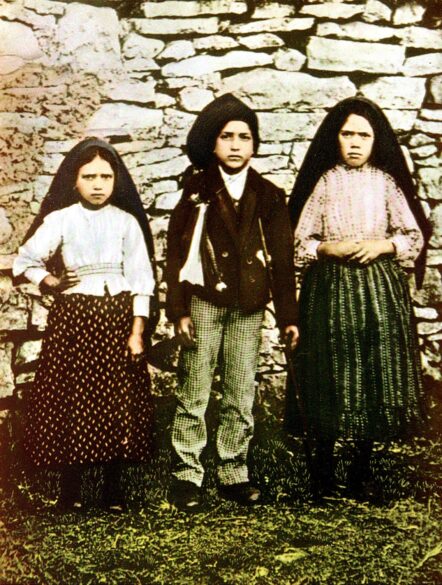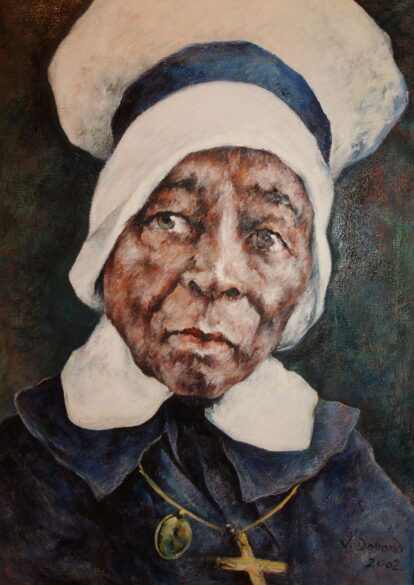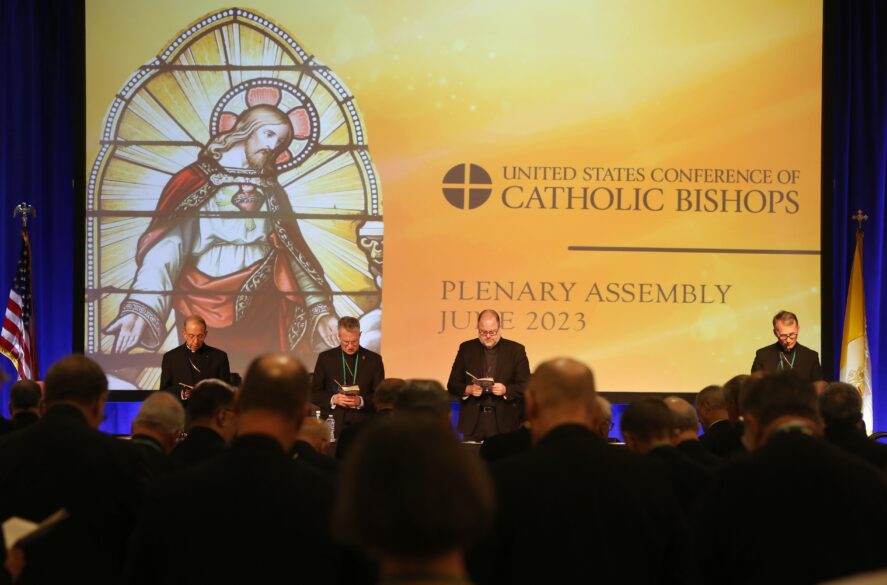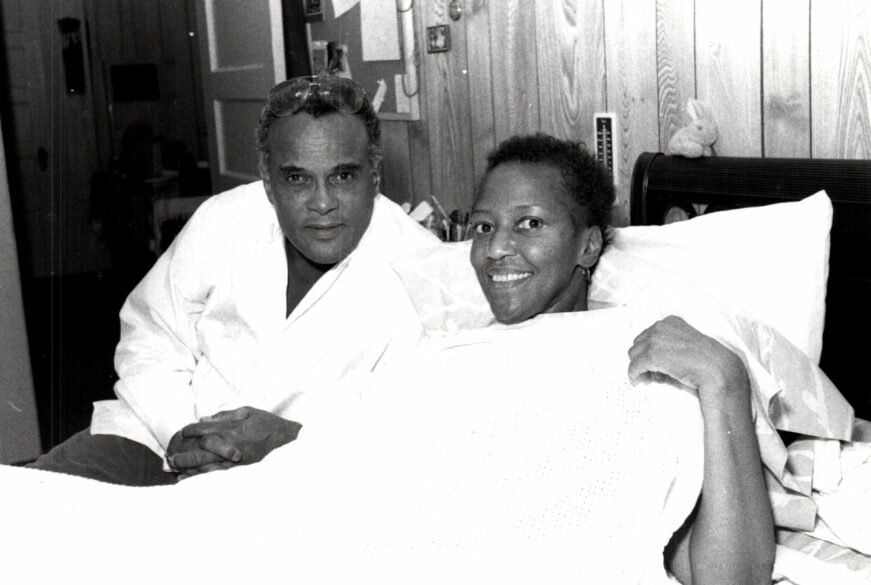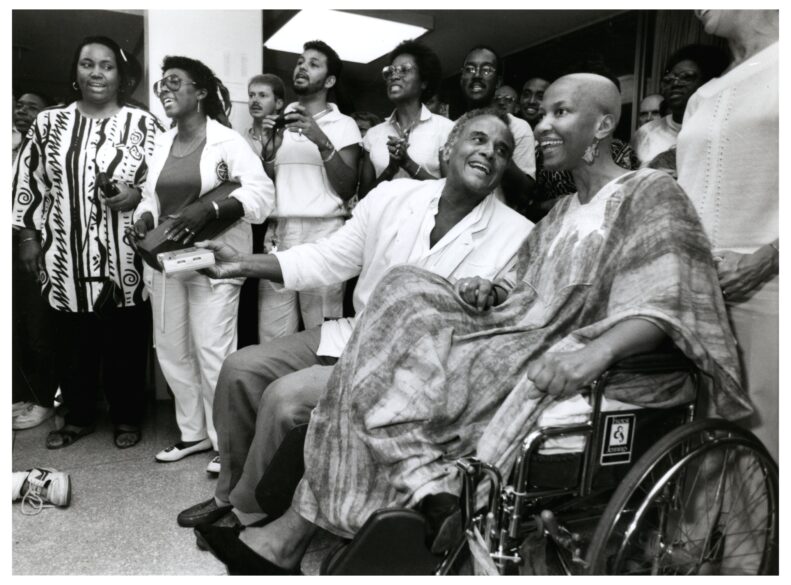By Mark Zimmermann
(OSV News) – Cardinal Wilton Gregory of Washington, the Catholic Church’s first African American cardinal, reacted to President Joe Biden establishing the Emmett Till and Mamie Till-Mobley National Monument in Mississippi and Illinois July 25, saying it was important to remember that youth’s brutal, tragic murder and his mother’s heroic quest for justice as the work for civil rights continues.
In a statement, Cardinal Gregory said, “It is painful to recall yesterday’s violence, but it is necessary so that the lessons learned in tears will hopefully prevent us from such tragedies in the future. Emmett Till and his courageous mother Mamie offered the world a sorrowful image of a pieta in 1955. If we remember such moments from the past, perhaps there will be less possibility of a future such image.”
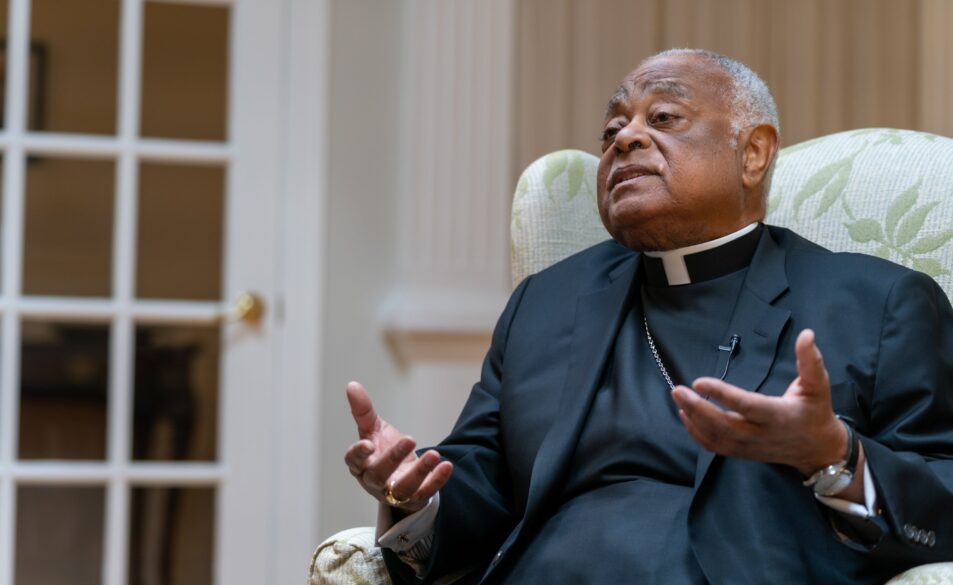
In August 1955, Emmett Till, a 14-year-old African American youth from Chicago, was visiting family in Mississippi when he was accused of making unjust advancements toward a white female grocery clerk, which his cousins and friends at the scene disputed. Four days later, he was pulled from bed, kidnapped and brutally murdered. Three days after his abduction, his mutilated body was pulled from the Tallahatchie River.
His mother Mamie Till-Mobley held an open-casket viewing and funeral for her son in Chicago, at Roberts Temple Church of God in Christ. Over several days, an estimated 125,000 people attended the visitation and funeral services. Emmett Till’s lynching helped galvanize the Civil Rights Movement and inspired Rosa Parks’ activism.
Among those who filed past Emmett Till’s casket was Wilton Gregory, a native of Chicago who was then nearly 8 years old. In a May 2023 interview with the Catholic Standard and the Spanish-language El Pregonero, newspapers of The Roman Catholic Archdiocese of Washington, Cardinal Gregory remembered that experience.
“I grew up in the mid-‘50s, and the great challenges that were going on in the United States at that time involved the Civil Rights Movement. I can remember as a young man going to the wake of Emmett Till, my grandmother took me to the wake. That was a pivotal moment in the Civil Rights Movement. And certainly, you know, just a startling moment for the African American community of Chicago, because he was a kid from Chicago that had been murdered in Mississippi.”
In that interview, Cardinal Gregory said he remembered “the sense of hope and determination that the Civil Rights Movement engendered,” and he also noted that he grew up in an era when President John F. Kennedy and Dr. Martin Luther King Jr. were assassinated.
“Those moments of tragedy … of the killing of Emmett Till, the assassination of those public figures, they didn’t break the spirit of the people of the time. They saddened us deeply, but they didn’t break our spirits. And I hope that’s also the case of the young people in today’s world, which is so divided,” the cardinal said. “My prayer, my hope is that our young people don’t lose hope, that they don’t just throw up their hands and say all is lost, (that) there’s no possibility of improvement, because there is. And that possibility of improvement resides with the young people themselves, that they work for a better world.”
In a 2020 interview with CNN journalist Christiane Amanpour, the cardinal also reflected on what it was like to attend the viewing of Emmett Till.
“I can remember that my grandmother took me to the wake … Emmett Till’s mother insisted that it be an open casket wake, so that people could see the brutality that her son had endured. And I was 7 or 8 years old at the time. And I went with my grandmother, along with literally thousands of African-American Chicagoans, to witness the awful brutality that that young man had suffered. It was – it was something that I shall never forget. We were in a long line. And, obviously, we just walked past the casket. And I recall seeing the awful, disfigured body of that young man.”
During a 2020 panel discussion sponsored by Georgetown University’s Initiative on Catholic Social Thought and Public Life, Cardinal Gregory said viewing the video of the murder of George Floyd – the African American man who died in police custody after a Minneapolis officer knelt on his neck for an extended period – brought back a flood of memories, including the viewing of Emmett Till. He said that Floyd’s death reminded him of “a whole collage of individuals who have been assassinated for no other reason than the color of their skin.”
President Biden signed the proclamation establishing the Emmett Till and Mamie Till-Mobley National Monument on July 25, on a day that would have been Emmett Till’s 82nd birthday. The new monument will be at three sites, at Graball Landing in Mississippi, believed to be the site where Emmett Till’s body was discovered in the Tallahatchie River; at Roberts Temple Church of God in Christ in Chicago, where his viewing and funeral were held; and at the Tallahatchie County Second District Courthouse in Sumner, Mississippi, where the trial of Emmett Till’s two accused murderers was held in September 1955, and an all-white jury acquitted them after an hour of deliberation. Both those men later admitted to killing the youth.

At the ceremony where President Biden signed the proclamation establishing the new national monument, Vice President Kamala Harris said, “Today we gather to remember our history. We gather to remember an act of astonishing violence and hate, and to honor the courage of those who called upon our nation to look with open eyes upon that horror and to act. The story of Emmett Till and the incredible bravery of Mamie Till-Mobley helped fuel the movement for civil rights in America, and their stories continue to inspire our collective fight for justice.”
Before he signed the proclamation, President Biden emphasized how, after Emmett Till’s murder, his mother Mamie Till-Mobley “insisted on an open casket for her murdered and maimed and mutilated son, 14 years old. She said, ‘Let the people see what I have seen.’ The country and the world saw, not just heard, the story of Emmett Till and his mother as a story of a family’s promise and loss, and a nation’s reckoning with hate, violence and racism.”
In March 2022 during a White House ceremony, President Biden signed the Emmett Till Antilynching Act, a law that makes lynching a federal hate crime.
When the Smithsonian Institution’s National Museum of African American History and Culture opened in 2016, the artifacts included the casket of Emmett Till.
(Mark Zimmerman writes for the Catholic Standard.)

